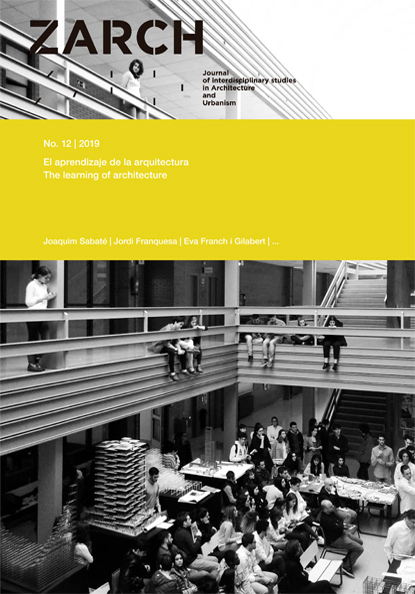Initiation to the architectural project: exercise as a device for learning
DOI:
https://doi.org/10.26754/ojs_zarch/zarch.2019123546Keywords:
Pedagogy, Strategies, Wording, Types, Educational methodology, Introduction courseAbstract
Experimental pedagogical strategies of the Avant-garde of the 20th century, such as the Base Section of the Vkhutemas or the Preliminary Course of the Bauhaus, are teaching methodologies that provided a set of didactic tools in the decades after the Second World War, in which workshop exercises such as those of Albers, Moholy-Nagy or Itten, were adapted to new educa-tional contexts and formats. Since then, numerous researchers and authors (Shellman, McGinty, Jordan, Somol, Stanton, Love…..) have analyzed parameters, characteristics and preliminary project procedures of different schools and contexts, in which the families of exercises form types or modalities of action that use a set of elements and project mechanisms, recogniza-ble as operative schemes that admit modifications without losing essential common characteristics. Their analysis shows the evolution and variety of propaedeutic and methodological pedagogies within a permanent debate around the teaching strate-gies of initiation to the architectural project and the nature of the exercise as a device for disciplinary learning and as a subject for reflection, research and knowledge.


